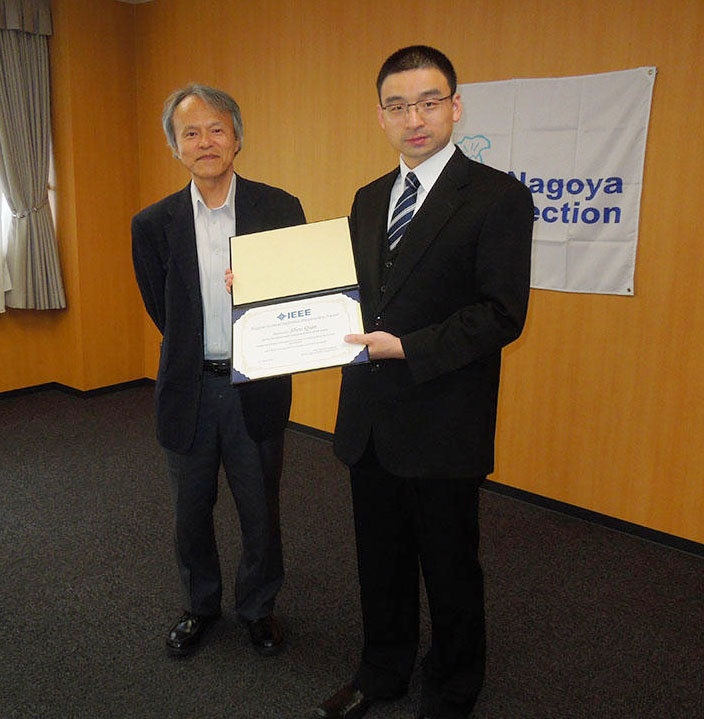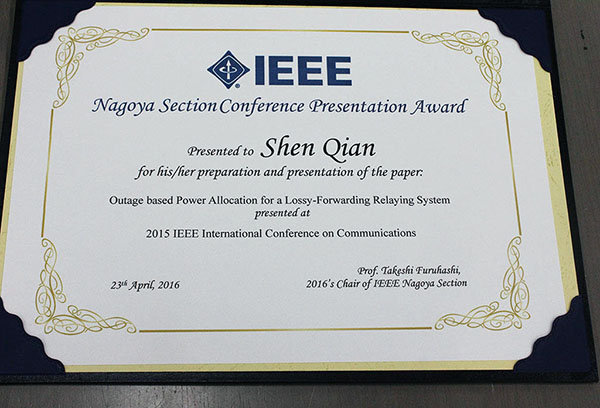Mr. Shen Qian, Secruity and Networks Area, wins IEEE Nagoya Section Conference Presentation Award for his paper presented at 2015 IEEE International Conference on Communications (ICC 2015)
Mr. Shen Qian, a doctoral student in Information Theory and Signal Processing Lab., Security and Networks Area, received the IEEE Nagoya Section Conference Presentation Award for his paper presented at 2016 IEEE International Conference on Communications (ICC 2015). As a flagship conference of IEEE Communications Society, ICC 2015 hold in London, UK from 8-12 June 2015. ICC 2015 offers several workshops covering a broad range of topics. The awarded paper had been presented at International Workshop on Advanced PHY and MAC Techniques for Super Dense Wireless Networks (CROWD-Net). Only 12 papers in total, were accepted for presentations from 73 submitted papers. The presented papers is to be published in IEEE Xplore, and copy of author's version manuscript can be downloaded from the JAIST Library Repository:
https://dspace.jaist.ac.jp/dspace/handle/10119/12951
For more details about IEEE ICC 2016, please see:http://icc2015.ieee-icc.org
■Date Awarded
April 23, 2016
■Title of the paper
Outage based Power Allocation for a Lossy-Forwarding Relaying System
■Authors
Shen Qian, Meng Cheng, Tad Matsumoto
■Abstract
In this paper, an optimal power allocation scheme for a simple lossy-forwarding relaying system is provided. Here, we extend our previous work of optimal power allocation of Slepian-Wolf relay system with constant source-relay error probability, to such that block Rayleigh fading is assumed for all transmission channel and lossy transmission is assumed in source-relay channel. A closed-form expression of the outage probability is derived at high signal-to-noisy ratios regime. It is shown that the outage curves calculated from the closed-form expression are sufficiently close to that obtained by the numerical calculation. Then, the optimum power allocation to the nodes for the system can be formulated as a convex optimization problem. Specifically, we minimize the outage probability while assuming the total transmit power is fixed, and also to minimize the total power under a given outage requirement. It is found that the system performance with the proposed optimum power allocation scheme outperform that with equal power allocation.
■Comment
It is a great honor to win this IEEE Nagoya Section Conference Presentation Award. I would like to sincerely thank all the lab members especially Prof. Tad Matsumoto who has guided and supported this work. In addition, I am grateful to my family for their support which has made this award possible.


May 10, 2016
